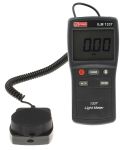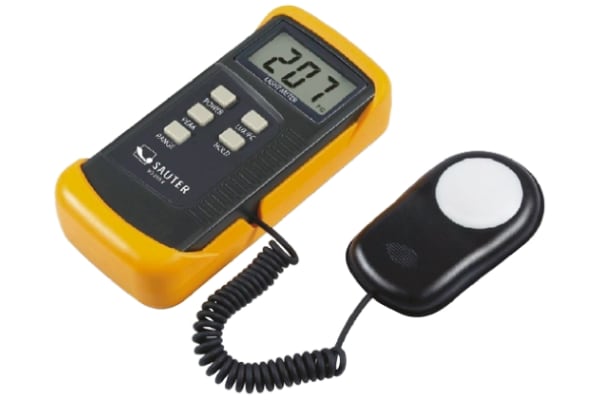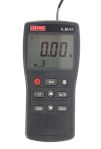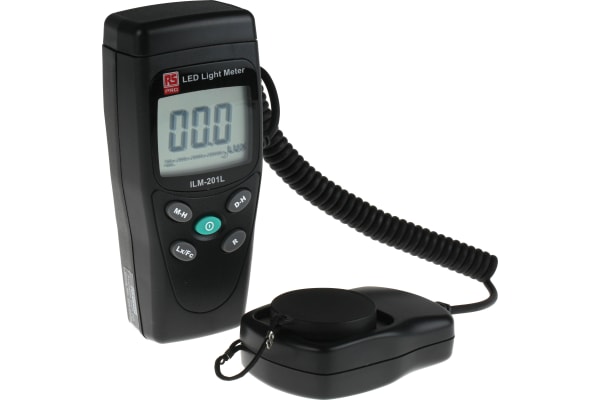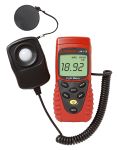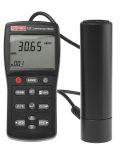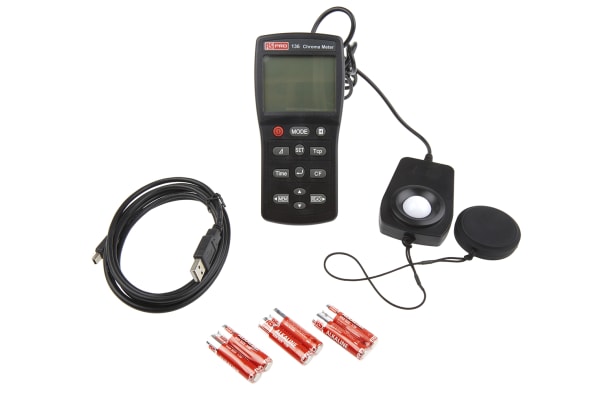Light Meters
Light meters, sometimes referred to as lux meters, are instruments that measure light levels or light pollution. You can find out more in our complete guide to light meters.How is light measured?Light can be measured in different ways with different light measurement instruments:Photometer – measures visible light or light intensity. Light intensity can also be measured in two different ways; one way is by using a luminance meter which measures the visible energy output of a light source, or another method is by using an illuminance meter that measures the visible energy falling on an object’s surfaceIntegrating sphere – collects electromagnetic radiation from a source completely external to the optical deviceSpectrometer – uses the light, breaks it into its spectral components and creates a digital signal in wavelength formLight Meter – measures light levels and is the most commonly used piece of equipmentLight meters usually return measurements in Lux (in Europe), foot-candles (in the US), or both. Typical models are handheld and feature an integrated light sensor or a sensor connected by a lead.What are light meters used for?Light meters are frequently used in workplaces, schools, hospitals and public places to test if there is an appropriate amount of light within the environment. This is particularly pertinent in the workplace, as there is a responsibility that employees work in an environment with suitable lighting.They are also a key piece of light measurement equipment when it comes to working in photography, especially when using a camera in a studio, or in ambient light. A handheld light meter is often used to determine the proper exposure for a photograph.Budget light meters can help to perform quick checks on light intensity where more advanced models have monitoring functionality as well as the ability to record, store and transfer data.Key Benefits of a Light Meter:Portable and sometimes pocket-sized, they are a useful piece of equipment to have for any light measuring applicationsA meter that offers accuracy in measurementEasy to read displays with real-time results
-
RS PRO RS-3809 Light Meter, 40lx to 400000lx, ±3 %
VND1,565,774.00 -
RS PRO RS-92 Light Meter, 0lx to 40000lx, ±5 %
VND1,939,224.00 -
RS PRO RS-8809A Light Meter, 4 %
VND2,134,194.00 -
RS PRO ILM1332A Light Meter, 0.01lx to 200000lx, ±3 %
VND2,381,544.00 -
RS PRO IM720 Light Meter, 400lx to 400000lx, ±3 %
VND2,529,372.00 -
RS PRO ILM 1337 Light Meter, ±3 % ±5 Digits
VND2,647,324.00 -
Sauter SO 200K Light Meter, 200lx to 200000lx
VND2,688,840.00 -
RS PRO ILM01 Light Meter, 0.01lx to , ±3 % ± 5 Digit
VND2,917,954.00 -
RS PRO ILM201L Light Meter, ±3 (Incandescent) %
VND3,379,286.00 -
RS PRO ILM1335 Light Meter, 0lx to , ±3% rdg ±0.5% f.s
VND4,627,288.00 -
Testo 540 Light Meter, 0lx to 99999lx, ±3 %
VND4,699,262.00 -
Amprobe LM-120 Light Meter, 20lx to 200000lx, ±6 %
VND7,197,400.00 -
RS PRO Light Meter
VND9,013,628.00 -
RS PRO Luminance Meters, 9.999 fL, 9.999 cd/m² to 1999lx, ±3 (Calibrated to Standard Incandescent Lamp (2856 K % @
VND9,336,444.00 -
RS PRO IM203 Light Meter, 20lx to 200000lx, ±3 %
VND9,569,826.00 -
Chauvin Arnoux CA 1110 Light Meter, 0.01 fc, 0.1 lx to 200000lx, ±3 %
VND13,910,188.00 -
RS PRO Light Meter, 0.01 fc, 0.1 lx to 99990lx, ±0.02 (XY/800 lx % @ Standard Illuminant A Measured), ±3 (EV
VND14,622,168.00







